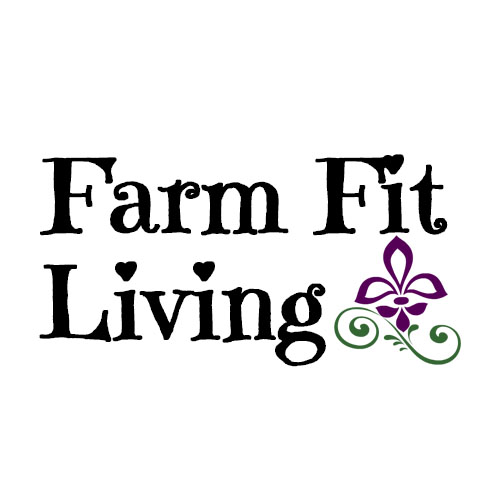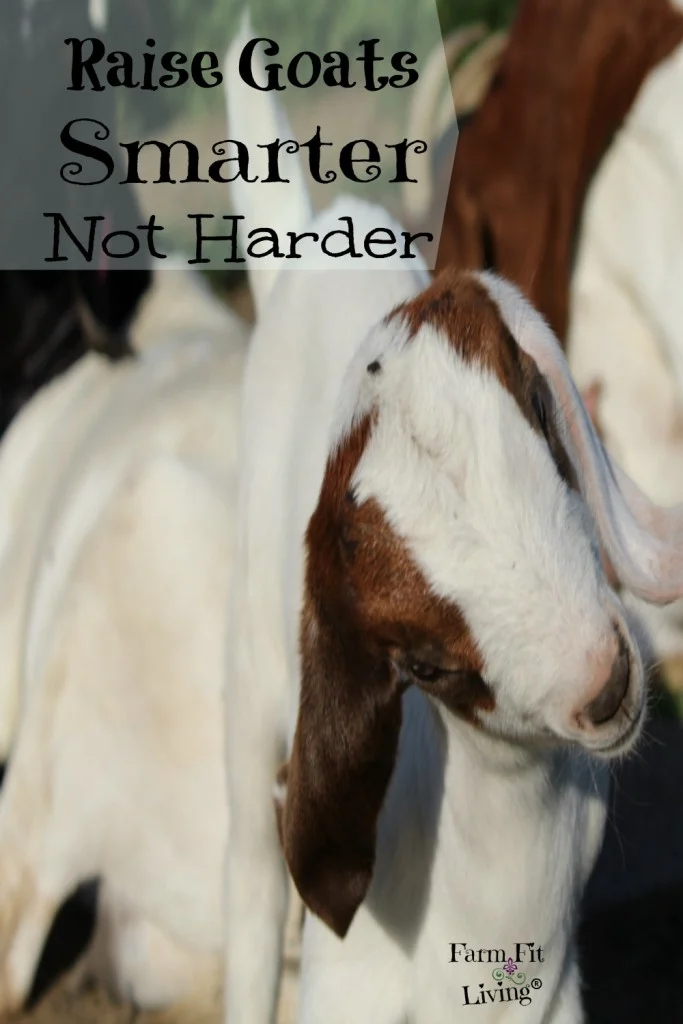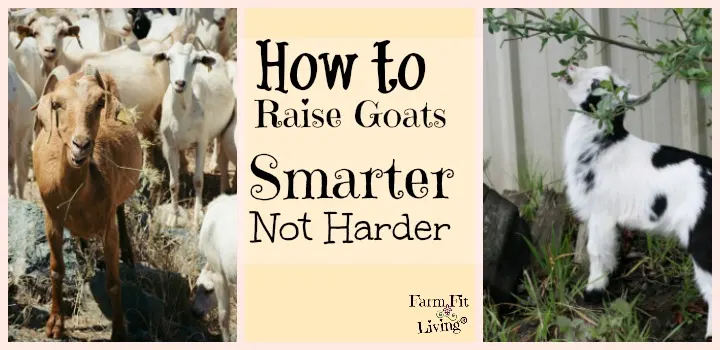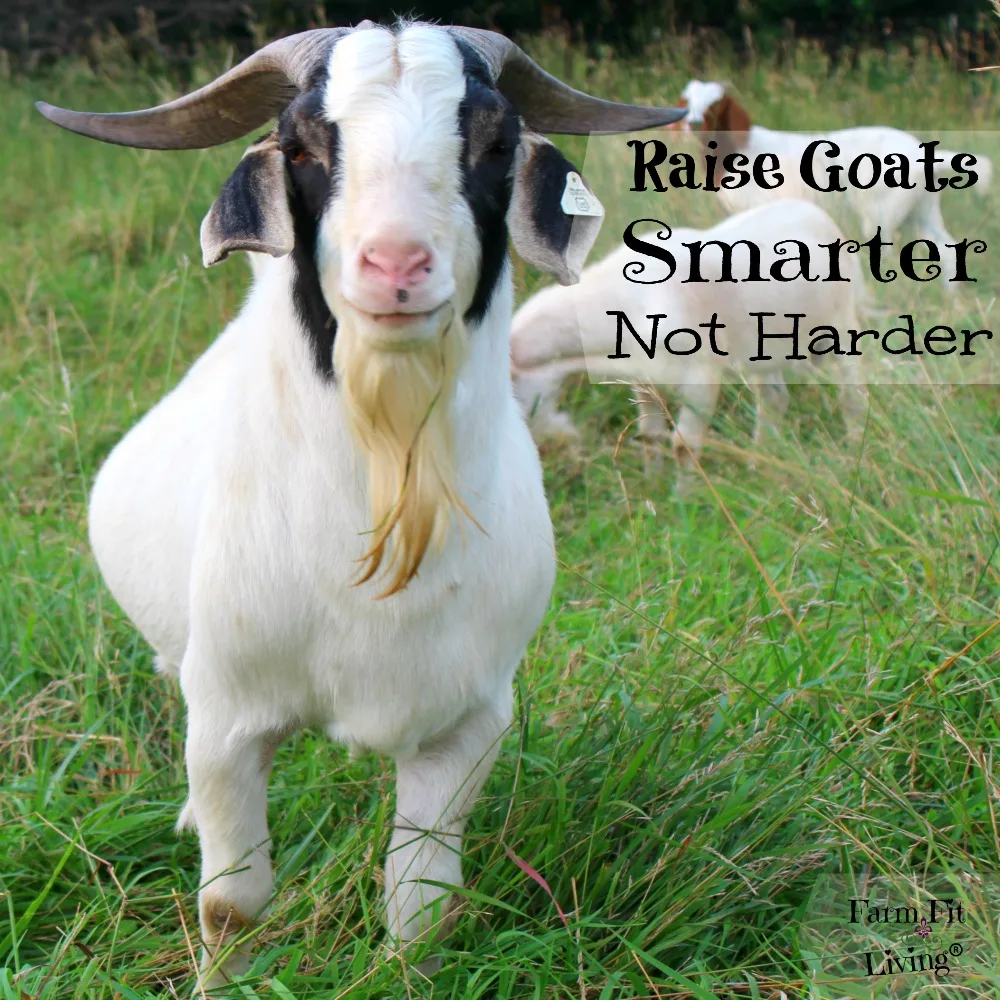Many new goat producers find it difficult to raise goats smarter not harder.
Anyone can raise goats smarter not harder to maximize benefits and minimize the urge to quit a venture that has proven overtime to be very enjoyable.
I talk to too many people who have quit raising goats because it was “too hard.” In fact, I see many new goat producers sell out of their investments and quit raising goats within only a three year period of starting.
This is not good for our industry demand. Goat meat is the most widely consumed red meat in the world. The meat goat industry should be growing to meet this demand.
But, the industry cannot grow with out goat farmers and ranchers to produce the goats to meet the demand. Better education and encouragement results in producers learning to raise goats smarter not harder.
I admit I have thought about quitting, too. But then, I found some simple solutions to some problems. Since then, my own goat herd has doubled in size and is expected to triple in the next five years.
In this post, I’m going to give you the knowledge you need:
- For some simple steps you can take to maximize goat farming for profit…easier.
- To raise goats smarter not harder and have fun doing it.
By the end of this post, hopefully you won’t need that raising goats for dummies book anymore.
How to Make Raising Goats Easy
How did my mind set change from “wanting to quit” to “wanting more goats?”
Well, I’ve always said that a person must be happy with what they are doing or else they shouldn’t do it.
I was not happy with how things were going with my goat herd. I had just lost an expensive buck because I listened to too many people and tried too many things to try to help him get better.
Also, my herd was experiencing an abortion storm during kidding season that same year. My does lost so many preemie kids that I was starting to think I was failing. It was so very frustrating. I was blaming everything under the sun except for what was really causing the issue.
With all of this happening, my awesome husband would not let me quit. He pretty much talked me out of it. And I am so glad he did. The key phrase I heard from our conversation was this: You need to remember why you started and focus.
I did think about why I started and I decided to turn on my thinking caps. It was time to make some changes to my goat operation. Time to turn my mindset positive and enjoy raising goats again.
1. Know your plan for raising goats
Before ever starting a goat farm, what were you thinking?
It’s really that simple. Remember why you wanted to start raising goats. Is your original plan working? How can you change it up to make it work better for you?
For me, I initially decided to implement goats to eat the brush on our land. As I grew, I started to lose focus about the path I was headed.
I learned there were different industries within the goat world to dabble into.
The two main ones are the commercial industry and show industry.
The commercial industry is the one I started with and is less glamorous than the show industry, which has much more stress involved with it. When I started to delve onto the show side, I learned just how much stress there was.
I think too many producers want the glam side of raising goats – the show side. But, it takes a very special mindset to be successful in the show side of the goat industry. You have to be popular.
When evaluating my path, I decided I needed to focus on just raising good meat goats that can compete well at local markets to make an income for my family.
I needed some more knowledge, too. I had already made the mistake of listening to too many people’s opinions. The next step was to find one person to help me learn skills to become a better goat producer.
2. Find a mentor
I found my mentor Jane through a Facebook goat group I was a member of. She is also from Kansas and is very knowledgeable when it comes to goat husbandry.
Jane was always good about commenting on my posts asking for help within the group. But, so was a lot of other people. My biggest mistake was trying to implement everything piece of advice given to me.
I realized then that I needed to raise goats smarter not harder.
I decided to message Jane questions and take just her advice for certain illnesses with goats. She taught me to stop, figure out the cause of the problem and focus on treating the source at hand. Not throwing the entire kitchen sink at something that one medication could treat.
Finding Jane has been a major stepping stone. Using one mentor I can depend on for questions has really helped to upgrade my knowledge with goats.
Thanks to Jane, my skills have increased tremendously and my budget for goats has increased as well. Since adding in a mentor, I have made money on my goats each year.
For further reading on how to find a mentor in just 3 simple steps, go here.
For an explanation on why you need a mentor, go here.
3. Make a budget and stick to it
Raising goats for profit has always been part of the plan. But, the first three years was yet to see a profit raising goats. The majority of the starter costs was the fencing and the goats themselves.
Unfortunately, I continued to make little to nothing on my goats. When I began to keep track of my goat farming profit margin, I realized I was spending way to much on them.
I focused on cutting my expenses and stopped buying goats and focused on raising replacements. I found alternative nutritional sources for the grazing season. My mentor helped me learn what meds I need to keep on hand and what meds I don’t need to be spending money on.
It’s really hard during sale season to not want to buy a goat!
Balancing needs vs. wants is a very powerful skill that takes much dedication. This is one of the most precious goat farming tips you will ever receive.
As my skills improve, I’m also saving more goats that get sick and goat kids born weak. I now know what foods goat should not eat. And even those situations are becoming few and far between because I’m feeding them the nutrition they need to be healthy.
I’ve been able to keep my input costs lower thanks to the knowledge I’ve learned from my mentor. I now know what goats only need to survive and thrive. And since practicing this, I can honestly say that raising boer goats for profit is very possible.
4. Know what goats need
Goats need plenty of browse as well as a well balanced diet. Nutrients goats need include: Protein, Macro & Micro minerals, and Roughage.
They also need specific amounts of nutrients to be healthy. Protein should be at least 14% when they are open, or not bred. Bred or pregnant does and breeding bucks need more protein than that – Around 18%. Lactating does need the most protein at 20%.
Goats also need minerals, especially trace minerals. I purchase a special mineral for goats that has plenty of all the trace minerals they need, such as selenium, thiamine, and copper. I’ve experienced less maintenance and sicknesses in my goats.
Providing the goats with better nutrition has allowed me to start to raise goats smarter not harder. Happy and healthy goats will thrive under any operation.
5. Explore Markets
A goat producer must sell a product to make money. Now that I am becoming more skilled, I am finding I have more goats to sell. This is great because income minus expenses equals profit. Profit equals sustainability.
I have explored two different types of marketing strategies I have found to be successful:
A) Goat Auctions
There are a couple of options for selling our goats at auctions in our area. One auction has weekly goat sales and is two hours away.
The other auction is only 45 minutes away but has a monthly goat auction.
Auctions are a great way to sell goats if you hit the right times of the year. Our current plan is to have a load of heavy kid goats ready to go in late Fall and another load in the spring two weeks prior to Easter.
Hitting the right holidays is prime time to take full advantage of the income you could be receiving from your product. Like I said before, goat meat is widely eaten all over the world. There is a huge demand for it at certain times of the year.
Late Fall is better time for selling goats due to the Islamic and Christian holidays in October, November and December. Buyers come from the East Coast to purchase goats by the truck loads at these Midwest goat auctions.
While auctions are nice to have around, I prefer to have a relationship with my customers. Therefore, I prefer private treaty sales.
B) Private Treaty Sales
I love selling my goats private treaty to my customers. Many of these customers are kids in 4-H and FFA who want a good quality, healthy project to grow and learn from.
Selling my goats at an affordable price to my customers keep them coming back for more each year. The push from my customers keep me wanting to raise goats smarter not harder year after year.
A simple strategy to raising goats in Kansas is to understand the differences in the seasons and how they can affect management practices.
6. Understand the seasons
You can maximize efficiency by knowing how to manage with each season of your environment.
In the spring, worm and parasite load begins to pick up. Understand that goats are NEVER worm free. They just have a certain level of worm load they can manage.
When the weather warms up, the worms in the ground start to wake up. Also, the newly fresh green grass of spring is super enticing to the goats and they want to consume it. Short grass and goats just don’t mix thanks to the parasites.
One good management strategy is to rotate pastures. If you can, rotate the goats into a pasture that has vegetation off the ground. This includes browse such as buck brush, tree leaves, cedar trees, locust, etc.
This year, we plan to put calves into the goats’ wintering pen to ingest barberpole worm. Those worms will not harm the cattle, while taking care of the worm load in that pen. I will still be checking the goats for barberpole load until Summer begins.
Summer time is the time when we manage the goats the least.
They are out on pasture during the prime vegetative months. I do check them weekly to be sure they are staying healthy and getting enough nutrition. Nutrition levels in vegetation depletes as Fall arrives.
I have had issues with worm loads in the Fall as well as nutrient issues. When Fall begins, I try to monitor their nutritional needs. They are consuming more mineral and I start to give them a little bit of protein feed because they are pregnant.
Finally, winter is kidding time as well as keeping the does healthy during lactation. Lactation is when the does’ nutrient requirements are the highest. I monitor condition and make sure their body condition scores are healthy.
One thing I have learned is to be proactive when I see a goat that just doesn’t look healthy.
7. Be proactive
This is the most important tip I have learned. A goat producer must be proactive when something is not right.
Know the different signs for different problems. Decide if it is worms, respiratory, digestive, nervous or external.
Then, treat for it immediately. Don’t wait for it to get worse. Start early with diagnosis and give it a chance to be treated early.
Contact your mentor if you have no idea what it is. That’s what is nice about smart phones these days. I can take a picture or video and sent it to my mentor.
Then, she can tell me what she thinks it might be. And also, how to treat it.
If she doesn’t know how to help me, she refers me to HER mentor, who is also amazing and has helped me with a few issues.
In reality, being proactive is the absolute key to success when you raise goats smarter not harder. It can relieve a lot of stress when the solution is met and resolved proactively.
If You Are Thinking About Quitting, You Need To Start to Raise Goats Smarter Not Harder
Raising goats should not be harder than you can handle. Raising goats should be a fun venture the whole family can enjoy.
Of course, there are setbacks and disasters with any venture you choose to explore. The best way to overcome tragedy and the feeling of wanting to quit is to learn from your mistakes.
Learn all you can just by having a plan to raise goats smarter not harder.








10 Top Busting Myths About Goats to Know
Wednesday 18th of April 2018
[…] For further reading on how to raise goats smarter not harder, Go Here […]
Top 10 Kidding Kit Essentials to Have On Hand | Farm Fit Living
Monday 5th of February 2018
[…] to any goat producer who has been breeding and kidding goats for a long time. You will find out that this is one of the things they all […]
How to Get Free Scrapie Tags for Sheep and Goats | Farm Fit Living
Monday 18th of December 2017
[…] with that said, do you understand why you need to implement scrapie tags into your herd management plan? Do it for your industry. Do it for the sustainability of your own […]
Winter Goat Care Guide for a Healthy Herd | Farm Fit Living
Monday 23rd of October 2017
[…] Winter goat care is a different kind of care in regards to a commercial goat herd. Winter is the season that can make or break your profits. It’s a season to love and to hate with a PASSION! And Winter goat care can be easy or it can be hard. […]
Online College Student to Online Entrepreneur with Ashleigh Hett | Rural Women Inspired Podcast
Wednesday 12th of April 2017
[…] First of all, she would build a chicken coop for Rhode Island Red chicks. Then, she’d buy some goats. […]